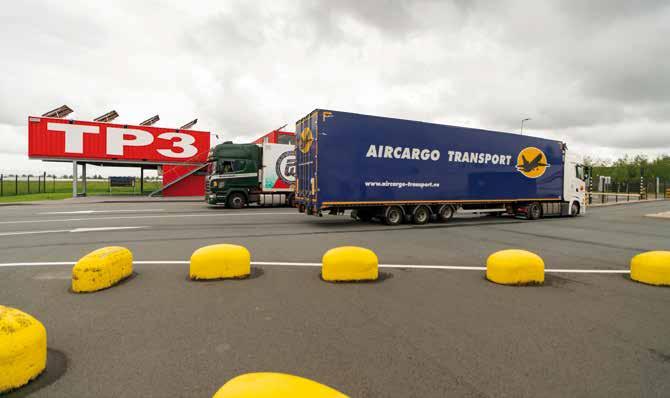
2 minute read
BigMile
by Cargomedia
Prepare for mandatory CO2 reporting and taxes
Climate and sustainability are more topical than ever. Both consumers and companies are becoming aware that something needs to be done NOW. Governments worldwide are preparing or have already (partially) introduced legislation to achieve the goals of the 2015 Paris climate agreement, and the logistics sector plays an important role in this.
Advertisement
Jan Pronk Text en Photography BigMile
Due to the recent developments surrounding the COVID-19 crisis, we as humanity have been forced to face the facts more than ever about how vulnerable we and our ecosystem really are.
CO2 reduction in the supply chain
The transport of people and goods causes 24% of global CO2 emissions and is the fastest growing sector in the world. This effect is the consequence of a growing international prosperity, which leads to an increase in the consumption of food, goods and thus international trade, as well as the number of people’s travel movements.
More and more consumers are doing their best to live in a more environmentally conscious way and companies are taking responsibility for demonstrating that they actively reduce their CO2 emissions.
If we look at the world of logistics and all aspects within the supply chain specifically, we see more and more sustainable initiatives there too. Consider, for example, the use of less polluting fuels, electrification, modal shifts, and working even

more efficiently, all of which should contribute to a significant reduction in emissions.
But how do you, as a shipper or logistics service provider, proof how much effect the improvements you have made within your supply chain have on CO2 emissions? This is only possible by properly measuring, calculating and reporting CO2 figures. This is possible with the help of the BigMile platform. Based on the applicable standards (eg COFRET, EN16258) and by being able to work with various international emission factor standards, BigMile is the standard when it comes to CO2 calculation and reporting within the logistics sector. BigMile is supported internationally by an increasing number of industry organizations and governments.
This standardization makes it possible for all shippers and companies within the logistics sector to take their responsibility correctly. It ensures that your organization is ready for existing and upcoming CO2 levies and taxes for each stakeholder in a transparent and accepted way. In this way, parties can enter into discussions about sustainability with each other in a transparent manner, without discussing rates.
In addition to being the calculation standard for calculating and allocating billable CO2 emissions down to the shipment level, the BigMile platform, thanks to the interactive dashboards, is also extremely suitable for clearly identifying CO2 footprint and the efficiency of your supply chain within your own organization. It helps make sustainability a successful part of your organization and ensures that you are prepared for future laws and regulations. So that your customers can continue to count on you and continue to cooperate with your organization with confidence.
More information
www.bigmile.eu










